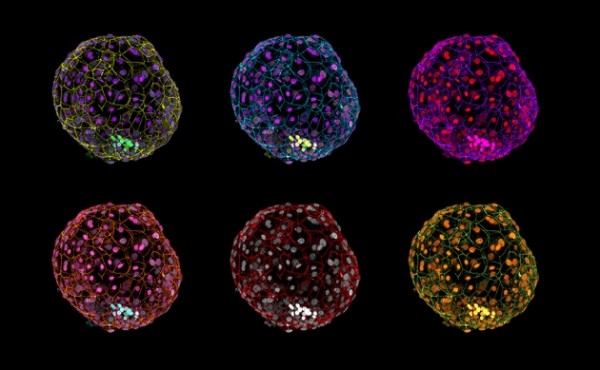By Ana Verayo, | May 05, 2016

Advances in culturing human embryos could reignite ethical debate on the duration of such experiments.
Scientists have made another breakthrough by growing human embryos in vitro for 12 to 13 days where the previous record was accomplished in nine days.
Experts believe that if scientists are able to create and develop human embryos for a period of two weeks, this milestone study can explore further early human development with utmost precision. These scientists are made up of two groups that allowed embryos to grow, one group for 12 days, and another group for 13 days.
Like Us on Facebook
By using cutting edge technology that are similar to each other, both groups utilized chemicals and even a special material that simulated a human placenta and uterus for the embryos to feel as if they are inside an actual female womb.
The technology that was incorporated for the experiments involved a technique that enabled the embryo to attach to the material, similar to the natural process of the womb. However, a commentary accompanying this new study also questioned ethical concerns about this method.
It is restricted to experiment on human embryos for the first 14 days, according to the International Society for Stem Cell Research. The organization also issued guidelines for researchers all over the world to comply with this 14 day period. The studies' commentary also note that experiments that reach close enough to this 14 day window could also suggest that medical officials will eventually revise this guideline.
Researchers also say that this 14 day rule was never intended to become this indication of the onset of human embryo research and its moral status. This is more of a public policy tool that is designed for specific scientific inquiry and to show respect across all diverse views on human embryo research.
The commentary also involves that this 14 day limit was set while the embryo develops, where approximately after two weeks, the embryos begins developing more distinct human features as it grows as a fetus in the placenta. This timeline was also chosen to provide a sensitive approach on various views when a human embryo obtains a moral status, drawing the line where research should be prohibited further.
According to bioethicist and Division of Medical Ethics head at the New York University Langone Medical Center, Arthur Caplan, this breakthrough would mean that the medical community should re-evaluate the ethics behind the experimentation of human embryos. Many people believe that from the moment of conception, it is already a human but these studies will renew that debate.
These new studies will also explore how far can researchers go into embryo research and genetic editing to repair embryos.
These new studies are published in the journals Nature and Nature Cell Biology.
-
Use of Coronavirus Pandemic Drones Raises Privacy Concerns: Drones Spread Fear, Local Officials Say

-
Coronavirus Hampers The Delivery Of Lockheed Martin F-35 Stealth Fighters For 2020

-
Instagram Speeds Up Plans to Add Account Memorialization Feature Due to COVID-19 Deaths

-
NASA: Perseverance Plans to Bring 'Mars Rock' to Earth in 2031

-
600 Dead And 3,000 In The Hospital as Iranians Believed Drinking High-Concentrations of Alcohol Can Cure The Coronavirus

-
600 Dead And 3,000 In The Hospital as Iranians Believed Drinking High-Concentrations of Alcohol Can Cure The Coronavirus

-
COVID-19: Doctors, Nurses Use Virtual Reality to Learn New Skills in Treating Coronavirus Patients







